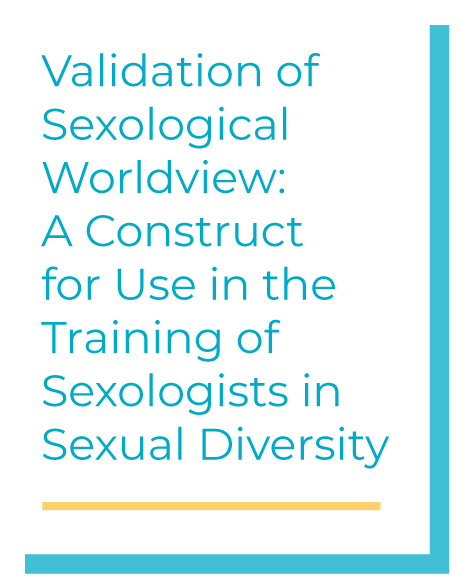Sexological Worldview refers to the way that people perceive and experience sex and sexuality with regards to their beliefs and assumptions about how the world works. The purpose of this research study is to validate the Sexological Worldview Development Inventory (SWDI), an instrument for determining one’s sexological worldview. By standardizing the SWDI as a result of this study, we hope to be able to better measure the effectiveness of trainings that are designed to develop more sensitivity in human service professionals around sex and sexuality.
The sexologist, like other social scientists, works with individuals who have their own unique and personal perspectives of the world. Recognition of this individuality is critical in order to provide humanistic and pluralistic service, perspectives supported by the American Association of Sexuality Educators Counselors and Therapists (AASECT, 2006), Stayton (1998), Tiefer (2006) and the author of this work. The fields of social work, education, psychology, and medicine all have specialized training methodologies specific to the work of professionals in those fields, and sexology values a specific training modality – the Sexuality Attitude Reassessment/Restructuring (SAR) program – a mode of training the sexuality professional in the affective domain (Weerakoon & Stiernborg, 1996). In an effort to find evidence that supports the use of the SAR training program, we reviewed past data from studies of the SAR. Much of the data gathered and analyzed is contradictory and filled with limitations. Furthermore, there is speculation by some scholars (Weerakoon & Stiernborg, 1996), that is wary of whether the training in attitudes (addressing the personal feelings, beliefs, taboos of the practitioner as described by Stayton (1998) has any correlation with effective and high-quality service provision.
Investigators: Justin Sitron, Ph.D. and Don Dyson, Ph.D.
Published: 3/13/2012
This project was informed by the following strategies:
 Learn
Learn
 Educate
Educate


